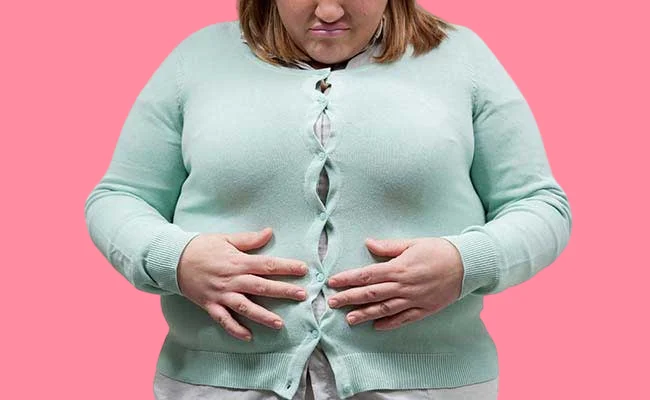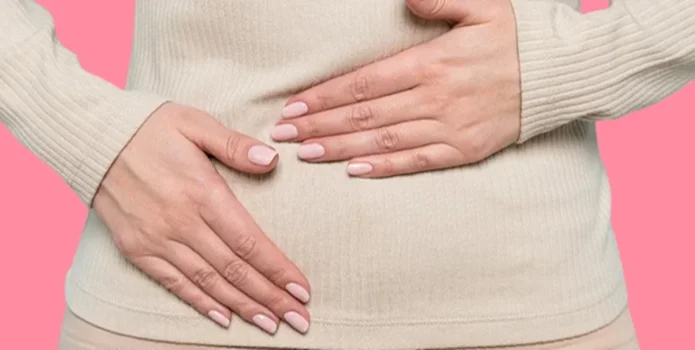Uterine fibroids are benign tumors that grow in or around the uterine wall. They are common among women of childbearing age. These tumors may be small and cause no symptoms.
Sometimes, these tumors grow, causing bleeding, abdominal pain, and other problems that affect the patient's daily life and reproductive ability.
Although these fibroids are non-cancerous, early diagnosis and medical follow-up are important to avoid complications and choose the appropriate treatment.
What is a uterine fibroid
It is an abnormal growth of muscle tissue in the uterine wall. However, it is a benign, non-cancerous tumor and may appear as a single tumor or multiple tumors of varying sizes.
Uterine fibroids begin as very small, unnoticeable nodules until they develop into large masses and can cause uterine enlargement. These tumors typically develop during the reproductive years, between the ages of 30 and 50, and are influenced by the hormones estrogen and progesterone.
Causes of Uterine Fibroids

There is no specific, clear cause for uterine fibroids, but several factors contribute to their occurrence, such as:
- High blood pressure.
- Obesity and overweight.
- Women between the ages of 30 and 50.
- A family history of the disease.
- Estrogen and progesterone.
- A reliance on red meat and a lack of fruits and vegetables.
What are the symptoms of uterine fibroids in women
In some cases, uterine fibroids may not cause any symptoms, but when symptoms do appear, they may include:
- Constipation.
- Frequent urination.
- Pain during intercourse.
- Delayed pregnancy and recurrent miscarriages.
- Heavy menstrual bleeding.
- Pelvic pain and abdominal swelling.
How are uterine fibroids diagnosed
Fibroids are diagnosed through a physical examination of the woman, where the doctor may notice an enlarged or irregular uterus. An ultrasound confirms the presence of the tumors and determines their size and location.
In some cases, MRI or hysteroscopy is used for greater accuracy, along with blood tests to detect anemia caused by bleeding.
Methods of Preventing Uterine Fibroids
Although uterine fibroids cannot be completely prevented, adopting a healthy lifestyle reduces risk factors, such as:
- Exercise.
- Eat a balanced diet.
- Maintain a healthy weight.
- Avoid stress and chronic fatigue.
- Regular medical checkups if there is a family history of the condition.
Complications of Uterine Fibroids in Women

Uterine fibroids may cause some complications that affect a woman's health, such as:
- Abdominal enlargement.
- Anemia.
- Pressure on nearby organs.
- Chronic pelvic and lower back pain.
- Premature birth or abnormal fetal position during pregnancy.
Types of Treatment for Uterine Fibroids in Women
The choice of treatment depends on the size of the fibroid, the severity of symptoms, the patient's age, and her desire to have children.
- Drug Therapy.
- Uterine artery catheterization.
- Surgical intervention to remove the tumor.
- Hysterectomy in severe cases.
Medications to treat uterine fibroids
Medications do not cure uterine fibroids permanently, but they can help temporarily reduce symptoms or the size of the tumor.
- Iron supplements.
- Pain relievers.
- Combination birth control pills.
- Hormonal medications such as leuprorelin.
- Medications containing androgens.
- Hormonal IUDs containing progesterone.
Do uterine fibroids affect pregnancy
Yes, uterine fibroids significantly affect pregnancy in some cases, depending on the location and size of the tumor. If the tumor is small and outside the uterine wall, it usually does not affect pregnancy.
However, if the tumor is inside the uterine cavity or compresses it, it may hinder implantation of the fertilized egg, cause delayed pregnancy and recurrent miscarriages, and may even lead to premature birth and cesarean section for the pregnant woman.
Summary of Uterine Fibroids in Women
Uterine fibroids are common benign tumors that arise from the uterine wall. They may be asymptomatic or cause bleeding, pain, and fertility problems.
These tumors are usually diagnosed using ultrasound and MRI, and treatment depends on the size of the tumor, the severity of its symptoms, and the patient's desire to become pregnant.
Therefore, treatment involves medication, catheterization, or surgery. Although uterine fibroids are non-cancerous, medical follow-up is essential to avoid complications such as anemia and delayed pregnancy.